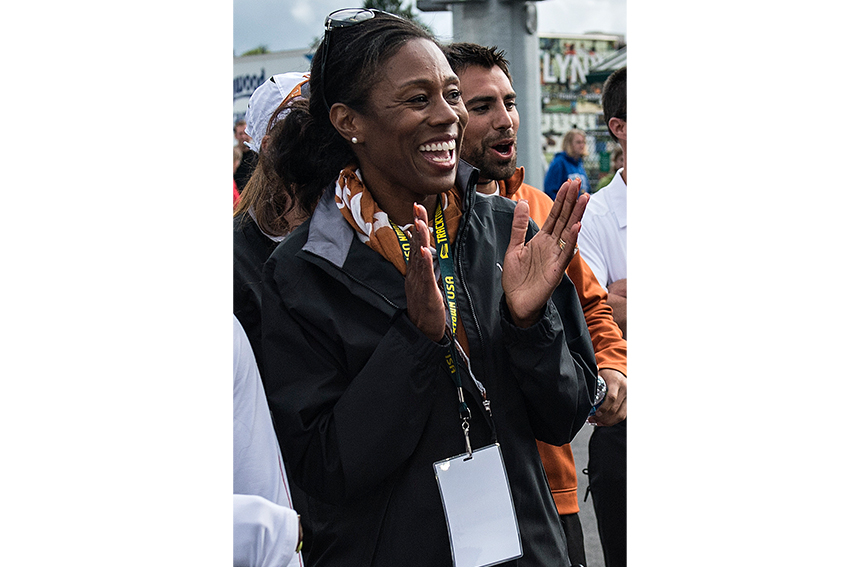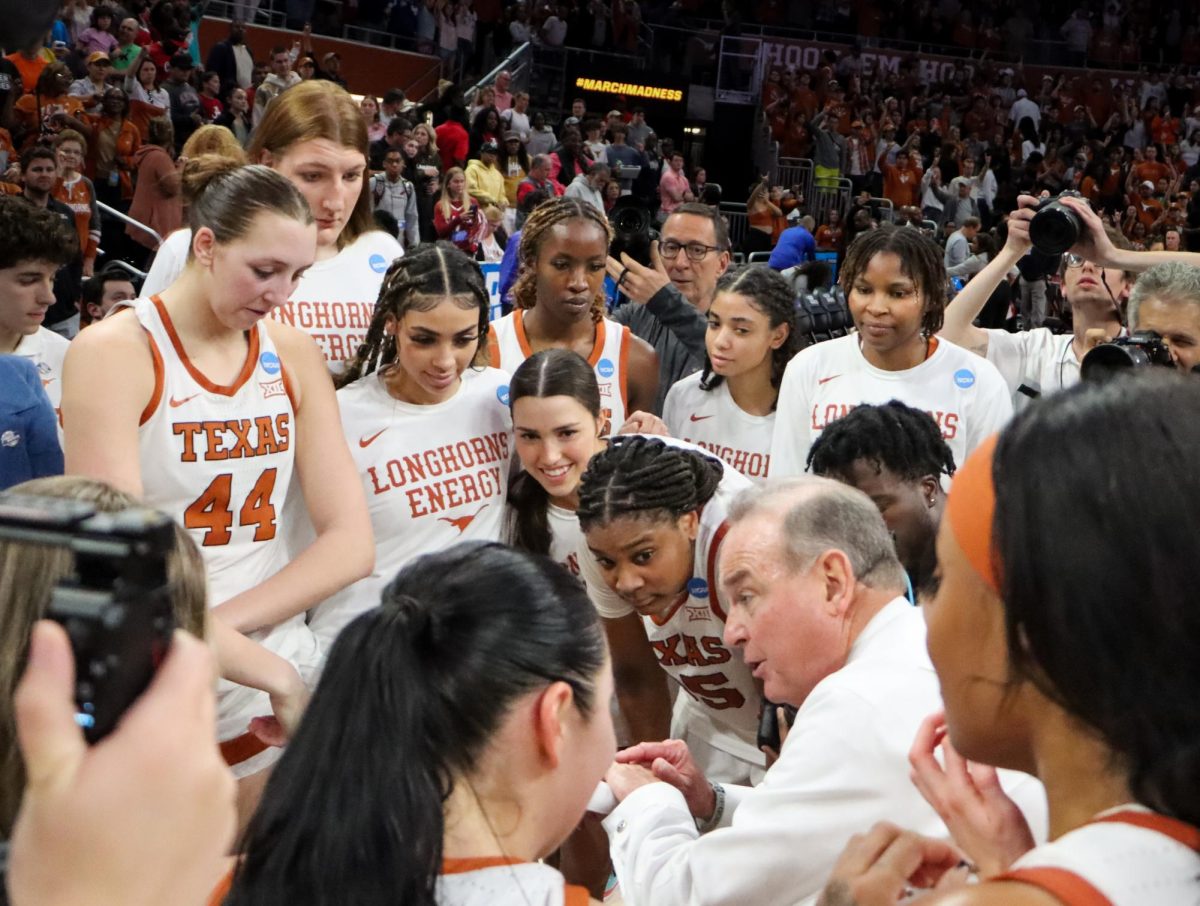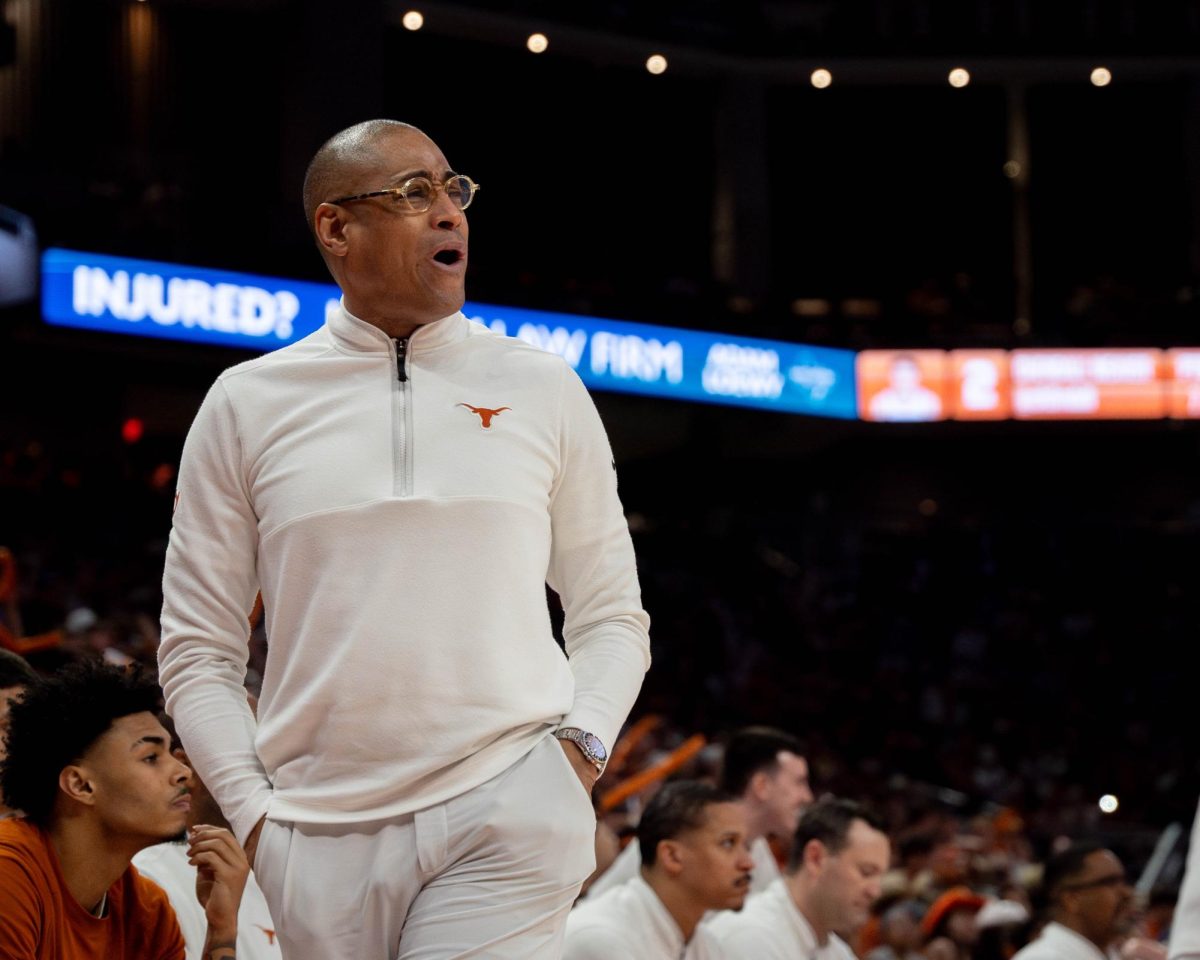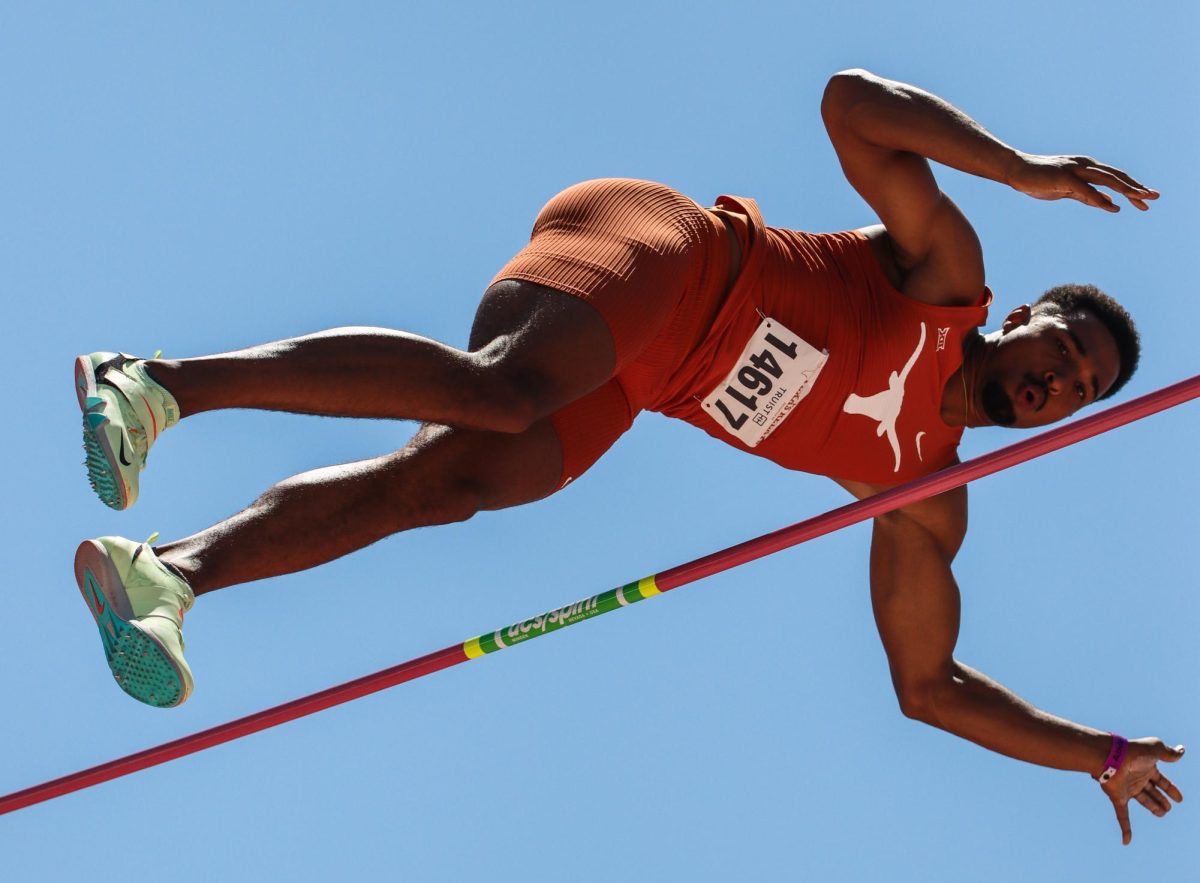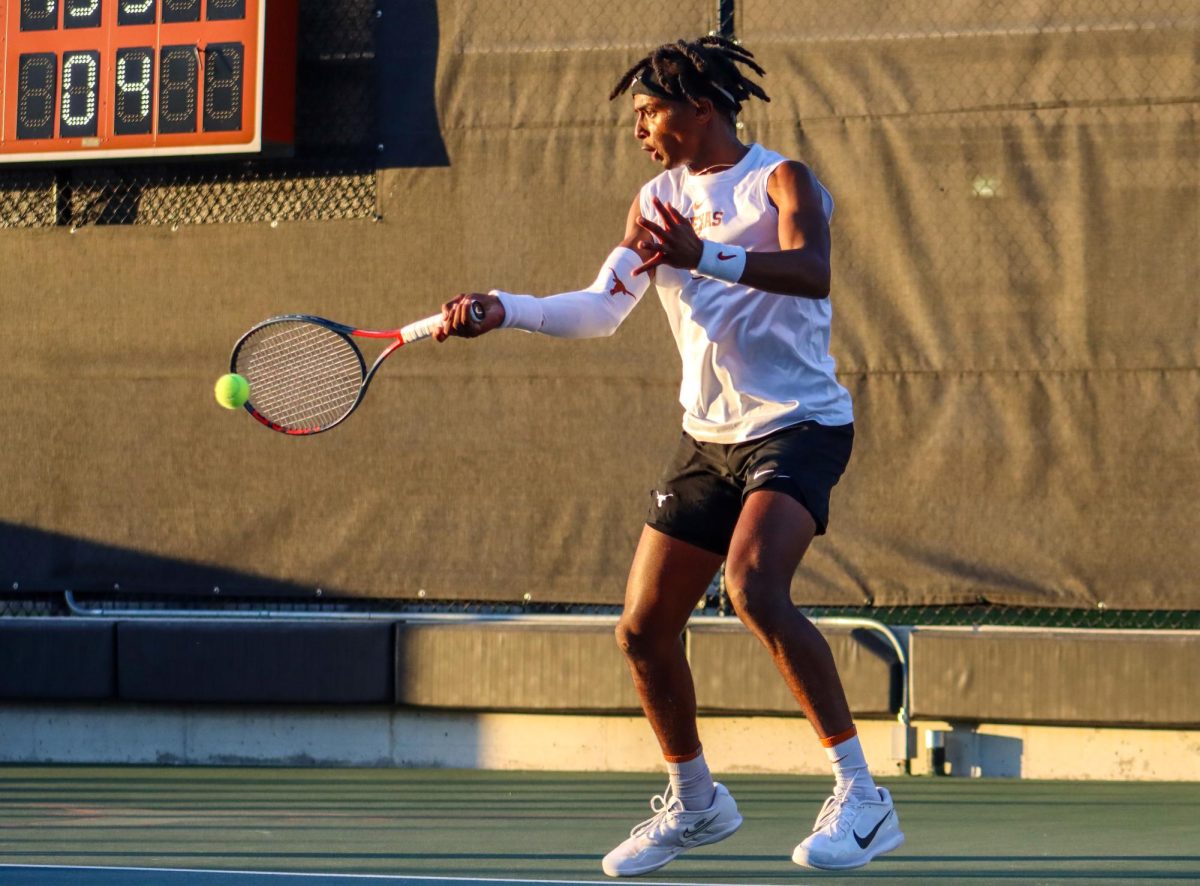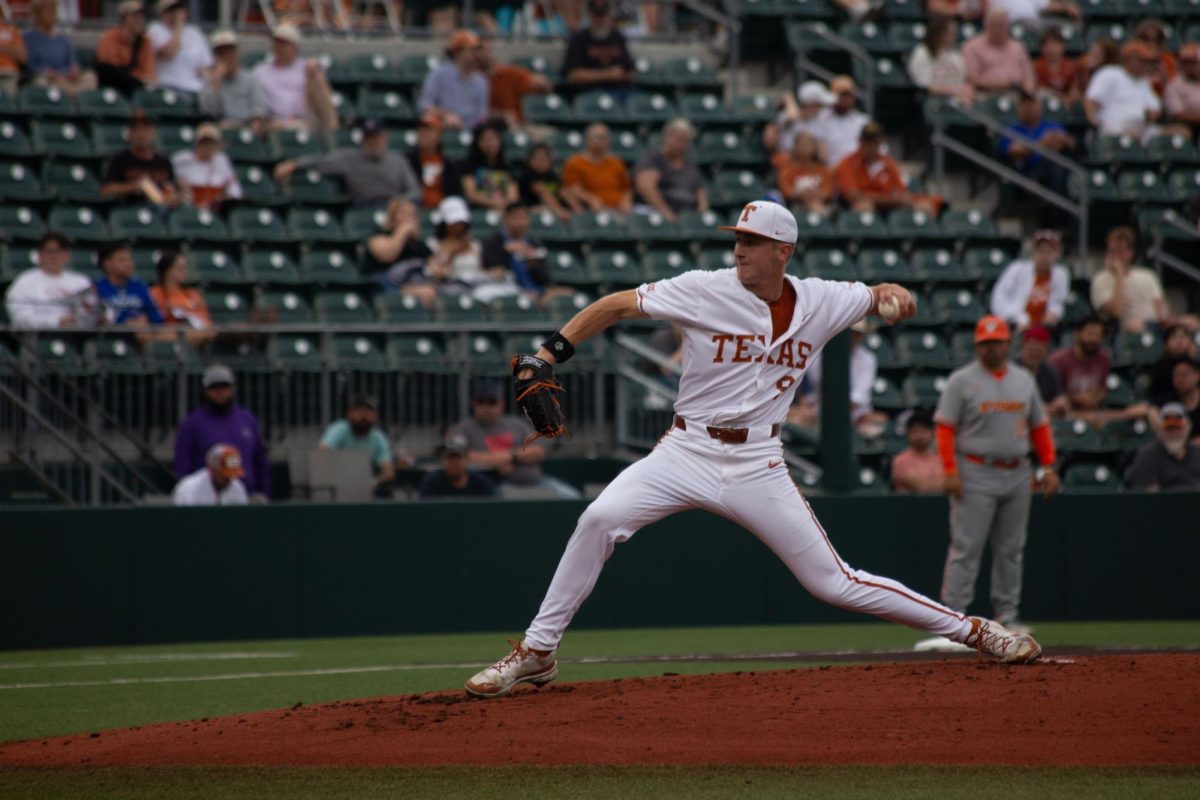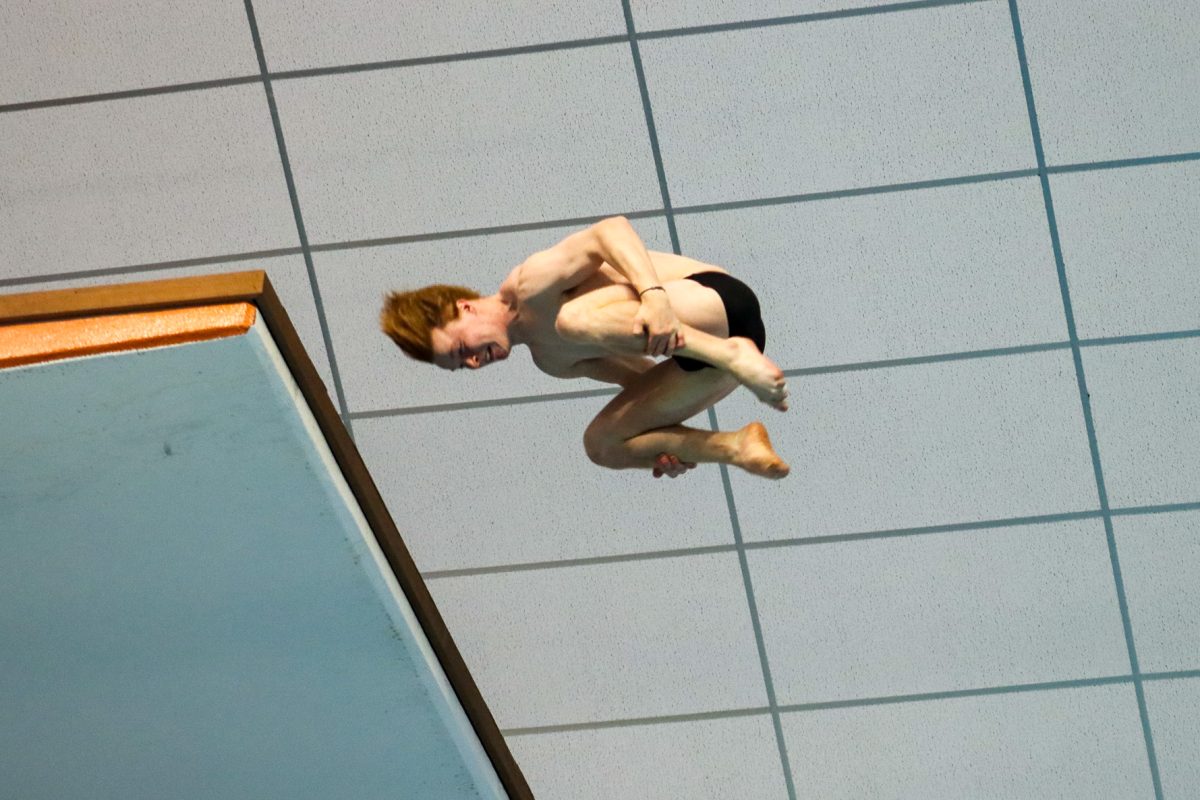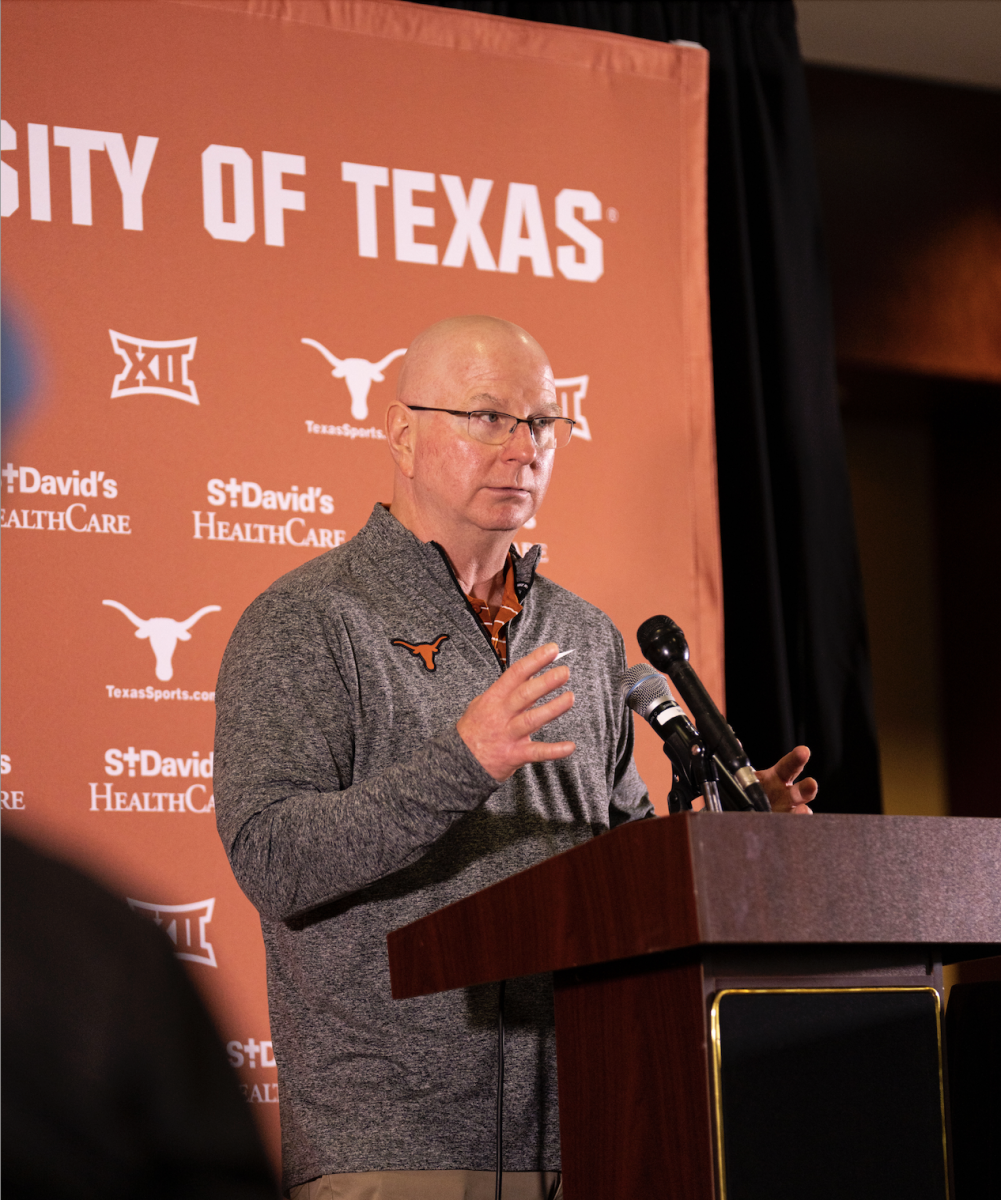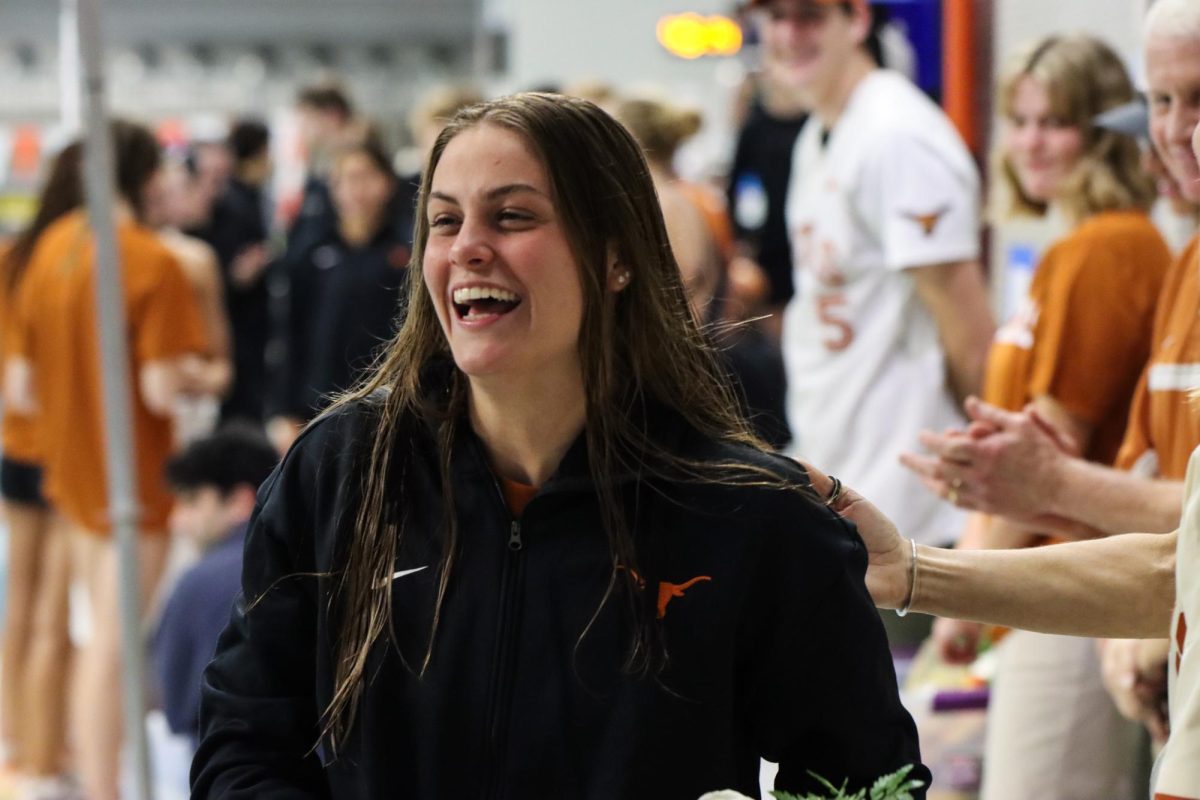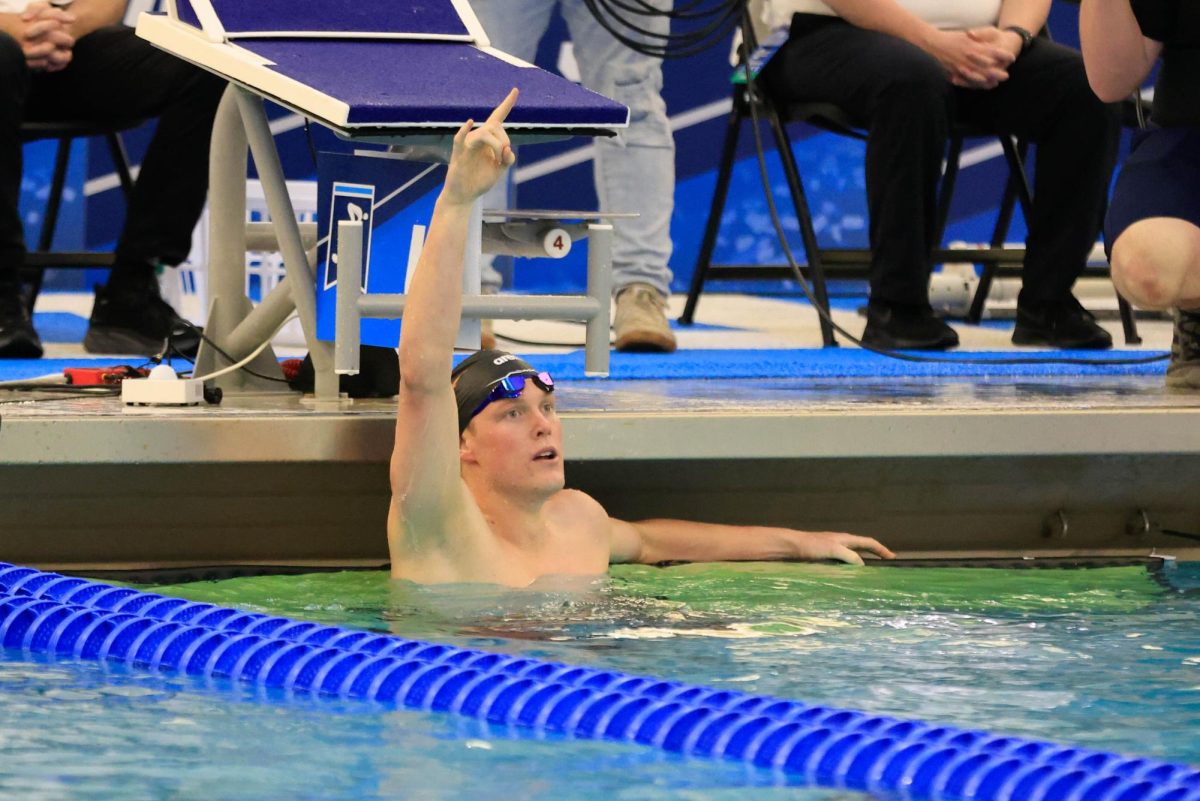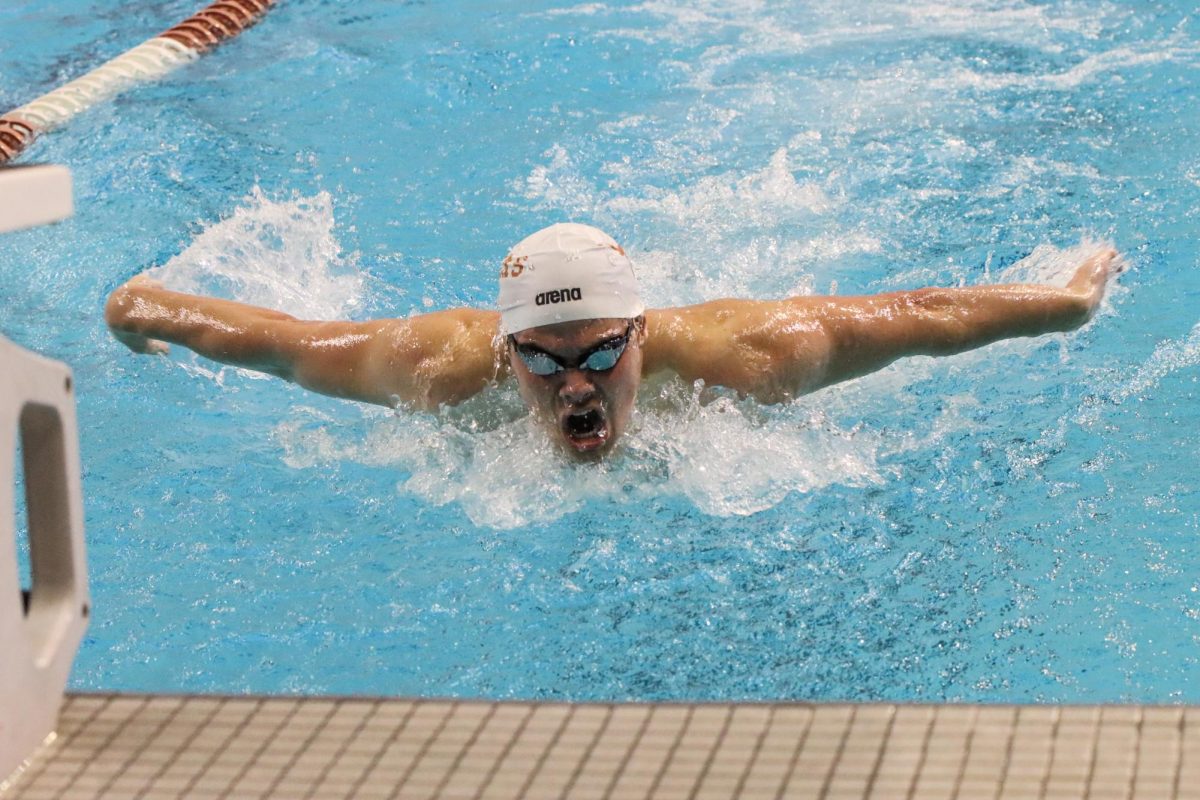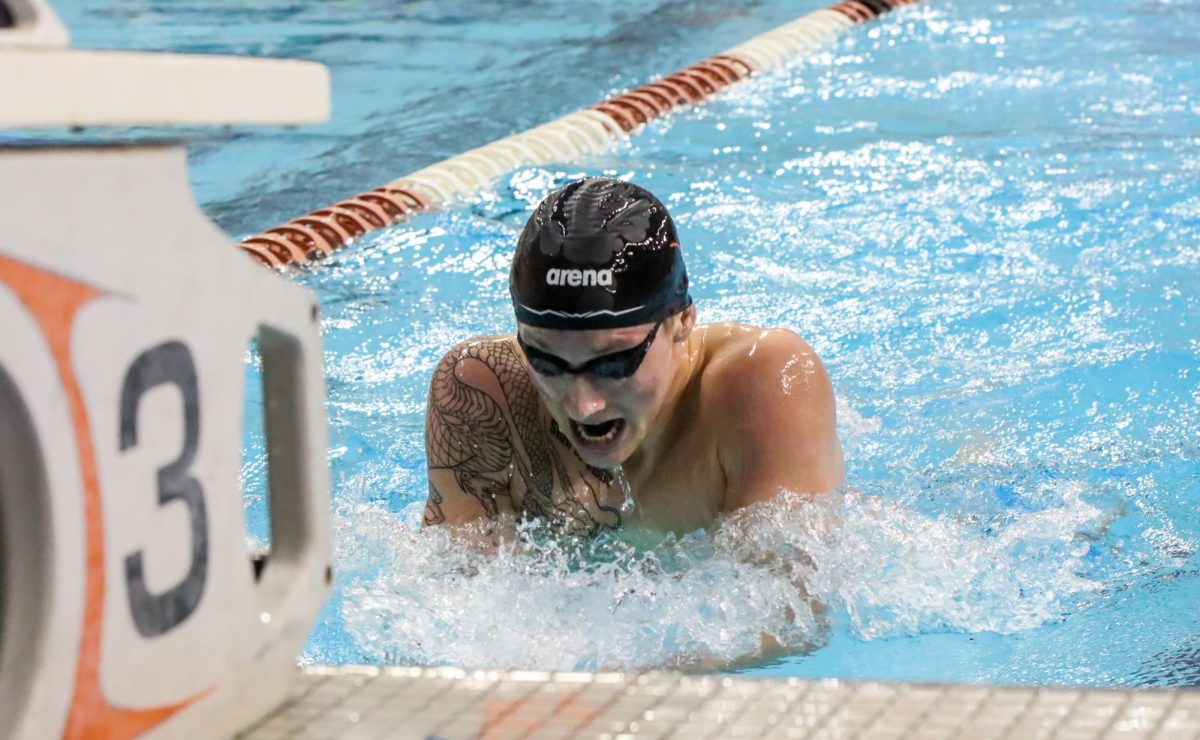Eight-year-old Tonja Buford-Bailey sat in her desk listening to the morning announcements at Townview Elementary School. The Northwest Track Club was starting a team that summer.
The now-associate head coach of the Longhorns could hardly sit still.
“When I heard there was an organized running sport, I was in from the word, ‘go,’” Buford-Bailey said.
Eventually, Buford-Bailey made her way to the Olympics three times as an athlete. She used her experience to help 10 Texas athletes she’s coached reach the Olympic trials earlier this month.
“Tonja has insight you can’t put a pricetag on,” Texas head coach Mario Sategna said.
But before she helped those athletes chase their Olympic dreams, Buford-Bailey chased her own. She grew up in Dayton, Ohio, a track-town decorated in street signs named after athletes like Edwin Moses, an Olympic gold medalist in the 400-meter hurdles.
Despite the hometown name, Buford-Bailey didn’t realize her Olympic goals were attainable until her junior year of high school.
“Watching my club teammate, LaVonna Martin, compete in the 1988 Olympics made everything real,” Buford-Bailey said.
Buford-Bailey began running track at the University of Illinois in 1989. During her junior year, she made her first of three Olympic teams under coach Gary Winckler. Although Buford-Bailey made three Olympic teams in three Olympic trials, she said the trials are unpredictable, even today.
“There were times I shouldn’t have been on the team,” Buford-Bailey said. “I ran my way on it.”
Winckler recalled two of those times. In 1992, Buford-Bailey competed at her first Olympic trials after winning the NCAA title in the 400-meter hurdles.
“By most people’s estimate, she wouldn’t be someone who would make it the first time,” Winckler said. “She was fighting for that third spot and the other athlete took a victory lap as soon as the race ended, but the results came out and it turned out Bailey was in that third spot.”
After taking bronze in the 1996 Olympics, Buford-Bailey came back to make the team a third time in 2000.
“She was coming back after having a child, so it came as a surprise,” Winckler said.
After her running career, Buford-Bailey taught fourth grade at Castle Hill Elementary school in Dallas. Winckler was in the market for a new assistant coach when he contacted her for advice.
“Until that point, I didn’t know she was interested in coaching,” Winckler said. “But she suggested it, and I told her I would make her a head coach in five years.”
Buford-Bailey returned to her alma mater as an assistant coach in sprints and hurdles for five years. After Winckler retired, she spent five more years as the women’s head coach.
In 2012, she was a member of the USA Olympic staff for sprints and hurdles, in charge of facilitating the schedules of athletes and their coaches.
After 10 years of coaching and an Olympic staff position, Buford-Bailey started as the associate head coach at The University of Texas in 2013.
This year, Buford-Bailey helped eight of her athletes from Texas and two of her athletes from Jamaica to the Olympic trials. As someone who has experienced the trials as an athlete and staff member, Buford-Bailey said being a personal coach was the most emotional.
“I was aware of my athletes trying to make their dreams come true,” Buford-Bailey said. “But I also felt more aware of the people who didn’t make it, which is very traumatizing to watch. I was a lot more sensitive to it than I ever have been before.”
After an emotional 10 days of trials, four of Buford-Bailey’s athletes will compete on the USA Olympic team, while one will compete for Jamaica.
“Working towards the Olympics as an athlete or as a coach is like a painting,” Buford-Bailey said. “You don’t know what it will look like when it’s over, but you’re making corrections and before you know it, it’s a beautiful painting.”



